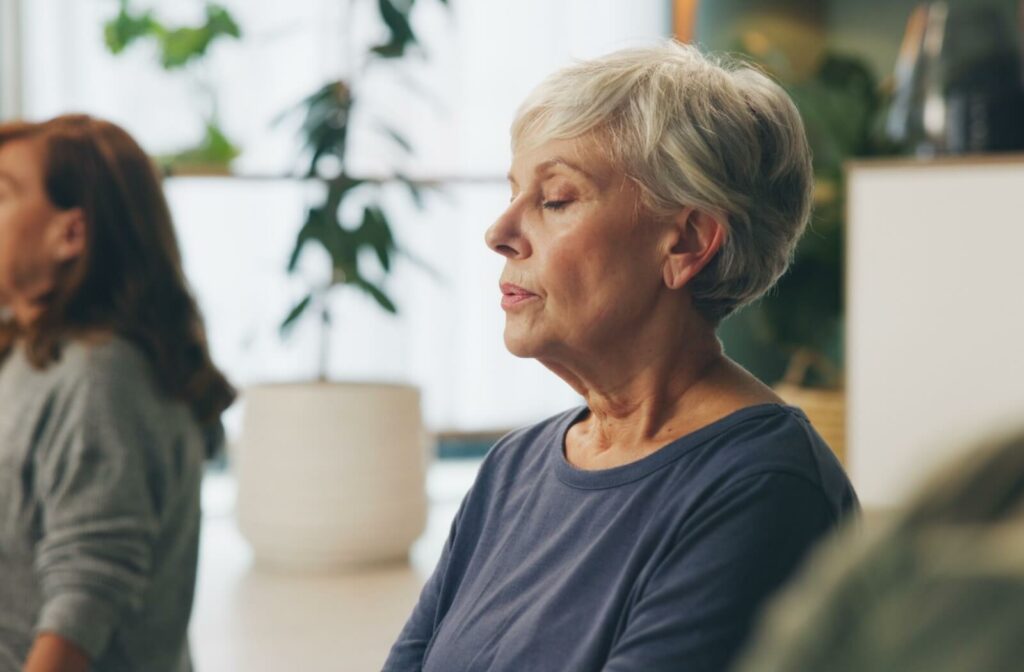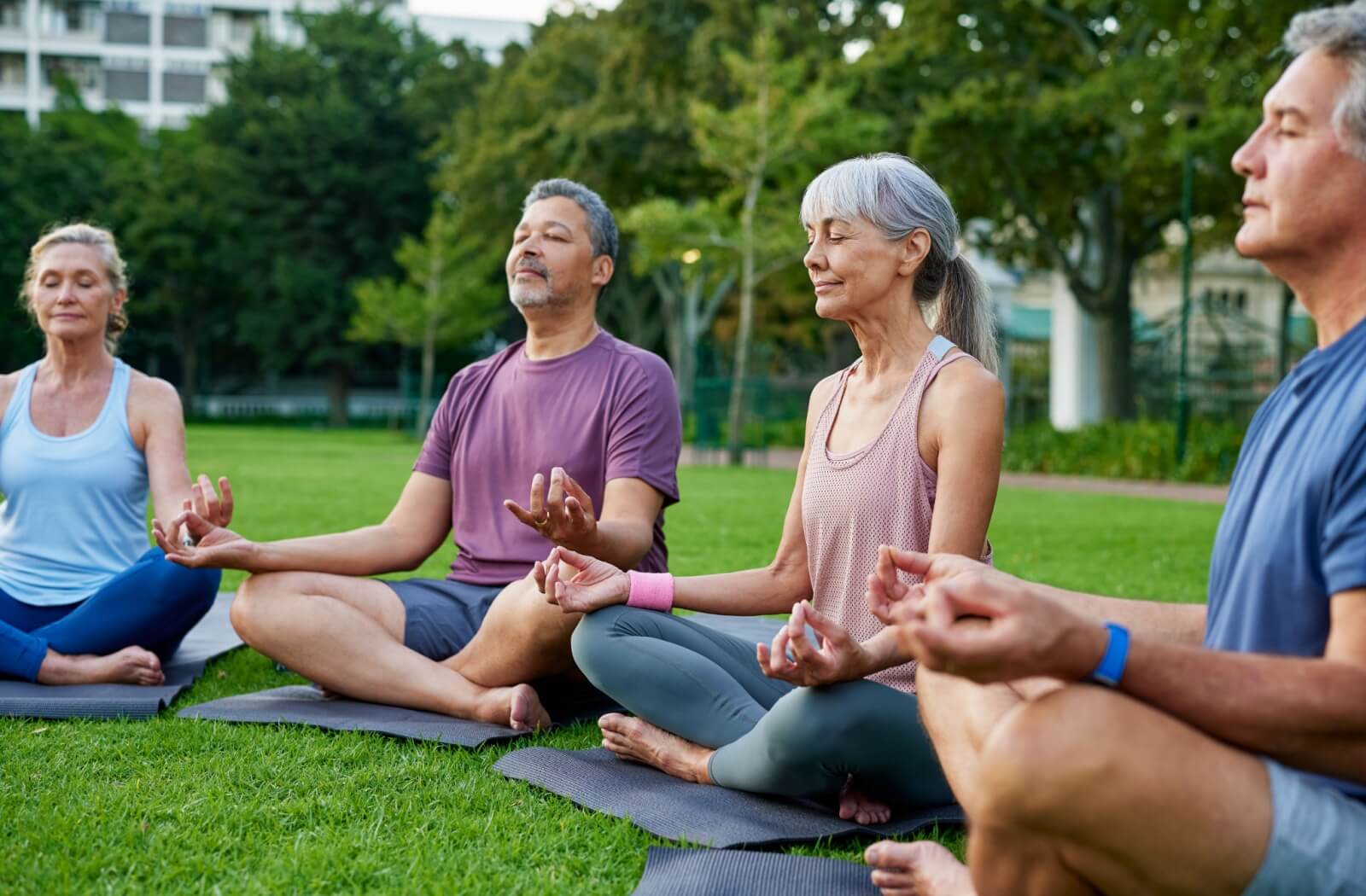Key Takeaways
- Stay Socially Connected: Engage in local activities and games to build friendships.
- Move the Body Every Day: Practice gentle exercises like walking and yoga.
- Practice Mindfulness: Use breathing exercises and meditation to manage stress.
- Engage in Creativity: Explore art and music for self-expression.
- Maintain Healthy Routines: Focus on balanced meals and good sleep.
- Spend Time in Nature: Enjoy parks and gardens to lift mood.
How to Enhance Mental Health as an Older Adult
Maintaining strong mental health is an essential part of aging well. While growing older brings wisdom and experience, it can also come with challenges such as changes in routine, relationships, or health. Focusing on emotional well-being helps older adults feel connected, confident, and fulfilled at every stage of life.
From daily activities like exercise and social connection to creative outlets and mindfulness practices, there are numerous simple and effective strategies to enhance mental health and promote longevity. These approaches provide comfort, build resilience, and support a positive outlook.
Why Mental Health Matters for Older Adults
Mental health affects how we think, feel, and engage with the world. For older adults, emotional well-being is closely tied to independence, relationships, and quality of life. Strong mental health helps reduce the risk of depression, improves memory and focus, and makes it easier to enjoy daily activities.
As people live longer, maintaining good mental health also supports physical health. Studies show that stress reduction, positive thinking, and meaningful engagement can improve sleep, lower blood pressure, and even boost the immune system.
Common Mental Health Challenges for Older Adults
Understanding the challenges older adults may face is the first step toward supporting emotional wellness.
Loneliness and Social Isolation
Many older adults experience changes in their social circles due to retirement, relocation, or the loss of loved ones. Without regular interaction, feelings of loneliness can quickly affect mood, energy, and even physical health. Social isolation has been linked to increased risks of depression, anxiety, and cognitive decline.
Staying socially active through phone calls, group programs, or shared meals can help combat these feelings and create a stronger sense of belonging.
Stress and Anxiety
Health concerns, financial pressures, or major life changes may increase stress as people live longer. Anxiety can sometimes appear as restlessness, trouble sleeping, or persistent worry that interferes with daily enjoyment. These feelings are common but shouldn’t be ignored, as they can affect overall wellness and quality of life.
Finding healthy outlets—such as exercise, relaxation techniques, or talking with trusted friends—helps manage stress and restore a sense of calm.
Depression
Depression is not a normal part of aging, but it can occur when a person feels disconnected or struggles with ongoing health conditions. Signs may include sadness, withdrawal from favorite activities, or changes in appetite and energy. Left unaddressed, depression can reduce motivation and make daily routines feel overwhelming.
With proper support, such as counseling, social programs, and engaging activities, older adults can regain joy and purpose.
Memory and Cognitive Changes
Natural changes in memory are common with age, but they can sometimes cause frustration or worry. Forgetting small details doesn’t always indicate a serious issue, yet it can still affect confidence and independence. A supportive environment that encourages mental stimulation, patience, and reassurance can ease these concerns.
Activities like puzzles, reading, or reminiscence programs can help keep the mind active while reducing stress around memory changes.

Everyday Ways to Boost Emotional Well-Being
Simple, consistent habits can make a big difference in how older adults feel day to day.
Stay Socially Connected
Conversations, group activities, and shared meals encourage laughter and connection. In Chatham, older adults often enjoy card games with neighbors, phone calls with family, and attending local programs that bring people together.
The Senior Center of the Chathams hosts everything from fitness classes to cultural events, making it a wonderful hub for building friendships and reducing loneliness.
Move the Body Every Day
Exercise doesn’t have to mean high intensity. Walking through Chatham-Kent’s scenic neighborhoods, joining a chair yoga class at the Senior Center, or stretching in a nearby park can all boost endorphins and lower stress. These small steps also support balance, flexibility, and confidence in staying active.
Practice Mindfulness and Relaxation
Mindfulness can be as simple as focusing on the present moment. Breathing exercises, meditation, or listening to calming music during a quiet morning at Memorial Park can help manage stress and promote a sense of peace.
Engage in Creative Outlets
Art, music, gardening, or journaling give older adults opportunities to express themselves and spark joy. Chatham-Kent offers community workshops and local art programs where older adults can explore new skills while connecting with others.
Maintain Healthy Routines
Balanced meals, good sleep, and consistent daily structure all support mental health. With access to fresh produce at the Chatham Borough Farmers’ Market and programs at the Senior Center, it’s easier for older adults to stick to healthy habits that foster stability and well-being.
Spend Time in Nature
Fresh air and natural surroundings can lift spirits and provide a calming break from routine. In Chatham-Kent, older adults can stroll through Shepard Kollock Park, sit by the Passaic River, or simply enjoy the gardens around town to reduce stress and improve mood.
Experience Joy and Connection at Juniper Village at Chatham
At Juniper Village at Chatham, mental health and emotional well-being are part of everyday life. Through engaging programs, creative opportunities, and a warm, welcoming environment, the community nurtures both body and spirit. Whether enjoying group activities, quiet reflection, or personalized support, each person is encouraged to thrive.
If you’re exploring senior living in Chatham, consider how a supportive community like Juniper Village at Chatham can provide not only care but also connection, purpose, and joy. Schedule a visit today!







